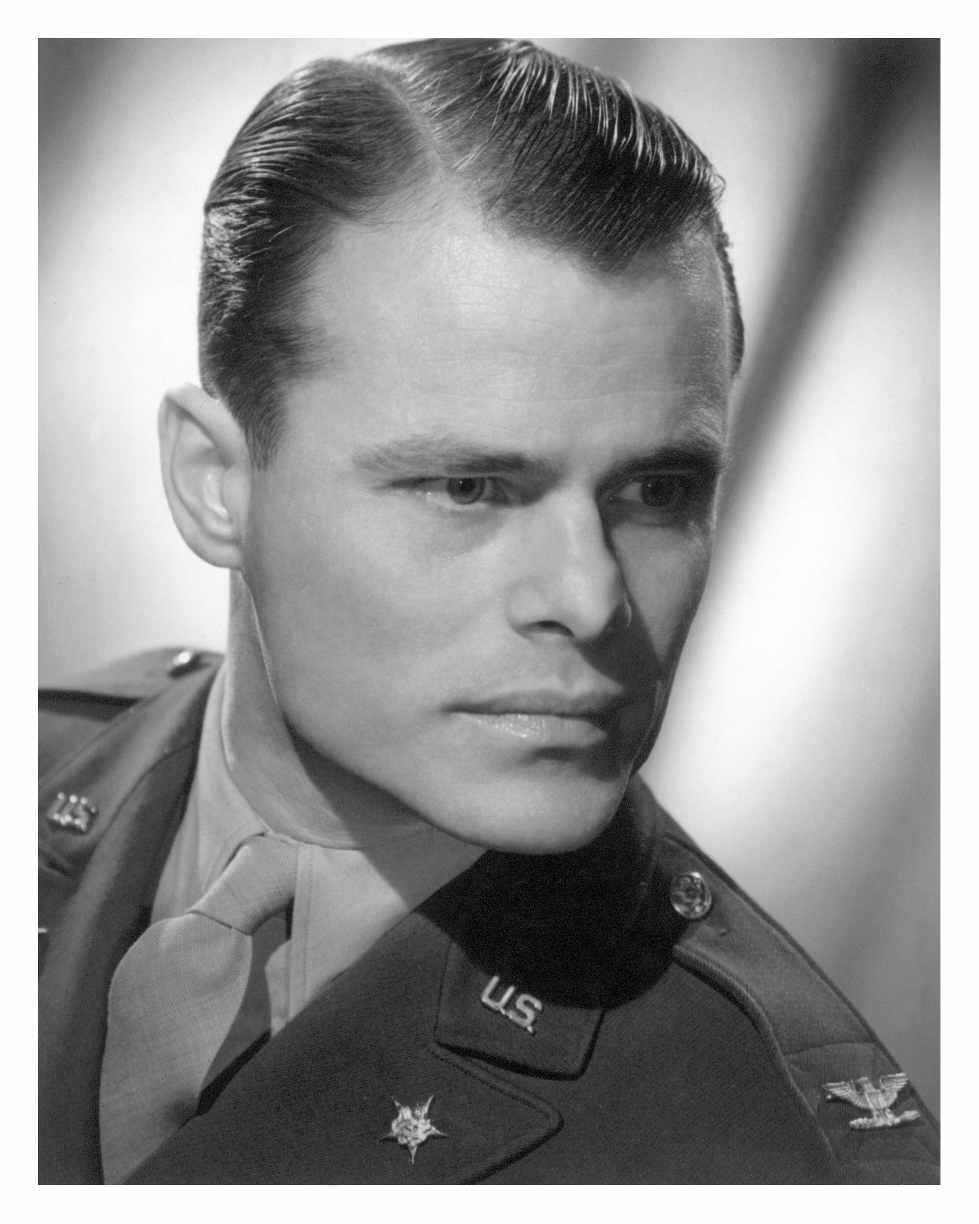Ralph W. Hauenstein
Ralph Hauenstein was a journalist, war hero, entrepreneur, and philanthropist. At 103 years of age, Ralph Hauenstein lived an extraordinary life that exemplifies the service and leadership Grand Valley State University seeks to inspire in its graduates. Born in Fort Wayne, Indiana, in 1912, Hauenstein moved to Grand Rapids at the age of 12 and called Michigan home for the rest of his life.
One of his earliest memories — he was five or six years old — was of handing out candy to doughboys leaving their midwestern homes for the battlefields of France. As a twelve-year-old Boy Scout, he assisted Civil War veterans from the Grand Army of the Republic meeting in Grand Rapids. They arrived in Grand Rapids by car — and by horse.
Hauenstein went to Central High School in Grand Rapids, where he ran track and played on the football team. It was on the gridiron that he ran into the future 38th president of the United States, Gerald R. Ford, who played on a rival team. They would become lifelong friends.
Hauenstein’s formal service to our nation began in 1935. That year, at the age of 23, he saw the “gathering storm” over Europe and sensed that the United States would become embroiled in a future conflict with totalitarian regimes, so he underwent officer training in the U.S. Army. The following year Hauenstein was commissioned as a second lieutenant and became commander of an all-African-American Civilian Conservation Corps camp near Cadillac, Michigan. Already as a young commander, he demonstrated a far-sighted commitment to civil rights by expanding the opportunities of the African Americans with whom he served.
After two and one-half years on active duty, Hauenstein returned to civilian life as a journalist and shortly became city editor of the Grand Rapids Herald. He was only 27 years old, yet already supervising 16 seasoned reporters.

Ralph Hauenstein 1944 Paris
In December 1940, one year before the attack on Pearl Harbor, he returned to active duty. During the Second World War, he was based mostly in Iceland and in London, and rapidly rose to the rank of colonel. As chief of the Intelligence Branch in ETOUSA, the Army’s European theater of operations, he worked under General Dwight Eisenhower. In 1944-’45, traveling to the Continent on a mission to find Hitler and other Nazi leaders, he was among the first Americans into liberated Paris, war-torn Germany, and Nazi concentration camps. It was in Paris that he gave the now-famous advice to General de Gaulle: to close French brothels, where American soldiers were prone to let military secrets slip. Col. Hauenstein was subsequently awarded the French Croix de Guerre with Palm and Legion of Honor. The U.K. awarded him their Order of the British Empire.
The destruction caused by warring dictators and militant ideologues steeled in Hauenstein the resolve to work for better international relations and peaceful solutions to conflict. Reflecting on his wartime experiences, the highly decorated colonel said, “In the twentieth century, I saw with my own eyes the worst that leaders are capable of. In the twenty-first century, I want to encourage the best leadership possible so that the world will be better for my children’s children.”
After the war, Hauenstein saw opportunities to build bridges between the United States and a Europe devastated by war. He went into international trade, establishing Tri-Continental Trading Company in New York City.
Tri-Continental partnered with European enterprises to provide goods and services to consumers in Europe, the Middle East, South America, the Caribbean, and elsewhere where democracies and free-market economies were struggling. He was the owner of Werner Lehara of Grand Rapids, a food equipment manufacturer that brought Goldfish crackers, Andes mints, Windmill cookies, pastas, and many other foods to the American consumer.
A philanthropist as well as a risk-taker, Hauenstein underwrote a modern bakery in Haiti, providing jobs for hundreds of workers and thousands of individual distributors at a difficult time in that nation’s history. He also set up a school in Florida that taught people from developing countries how to run a fully-automated bakery and provide good jobs in their local economies.
During the Eisenhower administration, Col. Hauenstein reunited with his old boss to serve as a consultant on the President’s Advisory Commission. In the mid 1960s, he also served as an auditor at the Second Vatican Council in Rome.
By his own admission, Col. Hauenstein never retired. At the age of 103, he worked almost every day, remaining active in numerous causes. He was part of the team that in 1996 supervised the first free elections in Russia. His philanthropy has benefited a variety of organizations devoted to education and medical research in West Michigan. He served on the board that founded the Van Andel Institute and helped establish the neurological center at St. Mary’s Hospital in Grand Rapids. At Grand Valley State University, his generosity made possible the founding of the Hauenstein Center for Presidential Studies, whose mission is to inspire a new generation of leaders devoted to public service.
When the rock star Bono came to Grand Rapids in 2006 and learned the scope of Hauenstein’s charitable and educational endeavors, he called Ralph Hauenstein “a cool cat.”
We agree. While Ralph Hauenstein passed away on January 10, 2016, his legacy guides Hauenstein Center programs to this day — a treasure to our students and to all who knew him.
During the summer of 2016, an extensive collection of archival materials belonging to Ralph W. Hauenstein were loaned to the Center by the Hauenstein family for digitization. These materials span Ralph’s incredible century of service on this earth: from his childhood, to his editorship of the Grand Rapids Herald, to his service in the Civilian Conservation Corps and in the U.S. Army, and so much more. Stay tuned for the Ralph W. Hauenstein Legacy Project.
